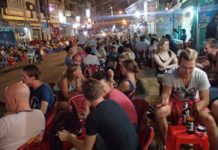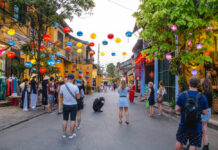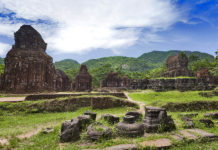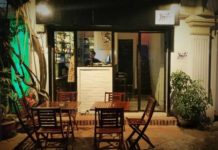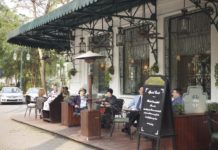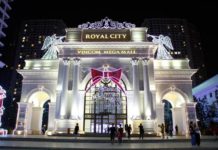Welcome to the ultimate Phu Quoc travel guide designed especially for those embarking on a visit to Phu Quoc Island for first timers. This comprehensive blog post will walk you through everything you need to know—from planning and accommodations to cultural experiences and practical tips. Whether you’re seeking tranquil beaches, vibrant marketplaces, or thrilling water sports, this guide has got you covered.
Introduction to Phu Quoc Island
Phu Quoc Island is one of Southeast Asia’s hidden gems, famous for its pristine beaches, lush forests, and unique cultural heritage. For many, it’s a dream destination that blends natural beauty with authentic Vietnamese charm. Here’s what makes this island stand out and why it should be on your bucket list.
Location and Geographical Overview
Located off the southwestern coast of Vietnam, Phu Quoc is the largest island in the country, situated in the Gulf of Thailand. It lies closer to Cambodia than the Vietnamese mainland but belongs administratively to Kien Giang Province. The island spans roughly 574 square kilometers, featuring a diverse topography that includes sandy beaches, mountainous terrain, dense tropical jungles, and coral reefs.
Phu Quoc’s coastline stretches about 150 kilometers, dotted with white sand beaches that vary from bustling tourist hubs to secluded coves. The island’s interior provides a rich ecosystem with several protected areas like Phu Quoc National Park, which covers approximately 31,000 hectares and offers an unmatched biodiversity haven.
Geographically, Phu Quoc has a tropical monsoon climate, contributing to its lush greenery and year-round warm weather, making it an ideal spot for outdoor exploration and beach relaxation.
Why Visit Phu Quoc? Unique Selling Points
Phu Quoc boasts a mix of attractions that appeal to different traveler types. Here are some of its standout features:
- Unspoiled Beaches: Unlike crowded beaches elsewhere in Vietnam, many of Phu Quoc’s shores maintain their natural allure with clear waters and soft sands.
- Seafood Paradise: Being an island, fresh seafood is abundant. Dishes made from local catch, such as grilled fish, squid, and crab, are culinary highlights.
- Rich Culture and Heritage: From fishing villages to traditional fish sauce factories — a product synonymous with the island — visitors can delve into local lifestyles.
- Adventure and Eco-Tourism: Nature lovers find plenty to explore here, including hiking trails, waterfalls, coral reefs, and wildlife sanctuaries.
- Modern Amenities: While retaining its rustic charm, Phu Quoc offers luxury resorts, wellness centers, and entertainment facilities, catering to upscale tourists.
This blend of nature, culture, and comfort makes Phu Quoc a compelling destination for all kinds of travelers.
Best Time to Travel to Phu Quoc
Understanding when to visit Phu Quoc is crucial to maximize your trip experience. The island experiences two primary seasons:
- Dry Season (November to April): This period offers sunny days, gentle sea breezes, and minimal rain. It’s perfect for beach activities, snorkeling, and island-hopping tours.
- Wet Season (May to October): Characterized by heavy but short-lived rains and occasional storms, this season sees fewer tourists and lower prices. However, some marine activities may be limited due to rough seas.
For first-timers looking for optimal weather conditions and accessibility, visiting during the dry season is highly recommended. The months from December to March are considered peak season, ideal for sunshine and festival events.
Planning Your Trip to Phu Quoc
Before diving into the delights of Phu Quoc, effective planning ensures a smooth and enjoyable visit. This section covers transportation options, visa protocols, seasonal considerations, and budgeting essentials.
Traveling with confidence begins with reliable information and preparedness.
How to Get There
Phu Quoc is accessible primarily by air and sea:
- By Air: Phu Quoc International Airport connects the island to major Vietnamese cities like Ho Chi Minh City and Hanoi, as well as some international flights from countries like Cambodia and South Korea. The airport is conveniently located near Duong Dong town, facilitating quick transfers to accommodations.
- By Ferry: Ferries operate between the mainland—specifically, Ha Tien and Rach Gia ports—and Phu Quoc’s Bai Vong port. Ferries are a scenic option but take longer; the journey ranges from 1.5 to 2.5 hours depending on the departure point.
While flying is the most popular and efficient choice for first timers, combining ferry rides with land transport can add to the adventure and allow you to see more of the surrounding region.
Visa Requirements and Entry Policies
Vietnamese visa regulations apply to Phu Quoc as part of the country, but there are some special policies for the island:
- Visa Exemption: Nationals from certain countries can enter Phu Quoc visa-free for up to 30 days if they arrive directly on the island via air.
- E-Visa and Visa on Arrival: Visitors from eligible countries can apply for an e-visa online or get a visa on arrival by coordinating with a travel agency.
- Entry Points: Visa-free access only applies if entering via Phu Quoc International Airport; entry by sea usually requires a visa.
It’s advisable to double-check current visa requirements before your trip, as policies can change. Many travelers opt to secure their visas in advance to avoid complications.
Choosing the Right Season for Your Visit
As previously noted, timing your travel during the dry season enhances your experience. Avoiding the rainy months means better chances for clear skies, calm seas, and uninterrupted outdoor activities.
However, visiting in the wet season can offer advantages like discounted accommodation rates, fewer crowds, and lush green landscapes. If you prioritize budget over sunbathing, consider the shoulder months like May or October.
Planning around festivals, such as the Phu Quoc Fish Sauce Festival held annually, can also enrich your cultural immersion.
Budgeting and Currency Exchange
Phu Quoc caters to a range of budgets, from backpackers to luxury seekers. Here’s how to manage your finances effectively:
- Currency: The Vietnamese Dong (VND) is the official currency. Cash is king in many places, especially markets and smaller eateries.
- Exchange Services: Currency exchange is available at the airport, banks, hotels, and authorized kiosks. Rates vary slightly, so comparing rates before exchanging is wise.
- Budget Estimates: Daily costs can range widely:
- Budget travelers might spend $20-$40 per day staying in hostels and eating street food.
- Mid-range travelers could expect $50-$100 daily for comfortable hotels and dining.
- Luxury travelers can easily spend upwards of $150+ per day on high-end resorts and fine dining.
Having a mix of cash and cards is prudent. ATMs are widely available but occasionally run out of money, so carry enough cash when traveling to remote areas.
Accommodations in Phu Quoc
Finding the right place to stay plays a crucial role in shaping your vacation experience. Phu Quoc offers numerous lodging choices that suit every preference and budget.
Whether you crave beachfront luxury or cozy guesthouses, the island has accommodations to match.
Types of Lodging Options
Phu Quoc’s accommodations fall broadly into three categories:
- Luxury Resorts: Offering private beaches, spas, gourmet restaurants, and resort-style amenities. These are often international brands or boutique properties focusing on exclusivity.
- Mid-Range Hotels: Comfortable and well-equipped, these cater to families and couples who want good service without exorbitant prices.
- Budget Guesthouses & Hostels: Ideal for backpackers and budget-conscious travelers, these provide basic facilities and opportunities to meet fellow adventurers.
Choosing the correct type depends on your priorities—whether it’s pampering or cultural immersion.
Top Luxury Resorts and Hotels
Phu Quoc has seen significant investment in upscale hospitality, with standout properties including:
- JW Marriott Phu Quoc Emerald Bay: Known for its unique architecture, luxury spa, and expansive beach frontage.
- InterContinental Phu Quoc Long Beach Resort: Offers spacious rooms, multiple pools, and exceptional service.
- Fusion Resort Phu Quoc: Features all-inclusive wellness packages and private villas with pools.
These resorts often include organized tours, fine dining, and leisure activities right onsite. Booking well in advance is essential during peak seasons.
Budget-Friendly Guesthouses and Hostels
If you’re traveling on a tight budget or prefer a more authentic local vibe, budget lodgings are plentiful:
- The Fish Hostel: Popular among backpackers for its social atmosphere and affordable dormitory beds.
- Mango Bay Resort: Eco-friendly with rustic bungalows not far from the beach.
- Lacasa Hostel: Centrally located, clean, and offers bike rentals for exploring the island.
Staying in these venues enables interaction with locals and other travelers, offering a deeper connection to Phu Quoc’s culture.
Tips for Booking Accommodation in Advance
To secure the best deals and preferred locations:
- Use reputable booking platforms and read recent reviews.
- Consider the proximity to key attractions or transport hubs.
- Book at least one to two months ahead during high season.
- Check cancellation policies due to unpredictable weather or changes in itineraries.
Advance booking prevents last-minute stress and guarantees availability.
Getting Around the Island
Once you arrive, navigating Phu Quoc Island efficiently ensures you get the most out of your stay. Transportation options are varied, and knowing how to move around can save time and money.
Transportation Options: Taxis, Rentals, and Shuttle Services
Several modes of transport operate on the island:
- Taxis: Widely available and convenient for short trips. Metered taxis are rare, so agree on fares beforehand.
- Shuttle Services: Some hotels offer shuttle buses to popular spots like beaches and markets.
- Private Drivers: Hiring a driver for a day is a cost-effective way to see multiple attractions without hassle.
Though convenient, taxis can become expensive if used frequently over long distances.
Renting a Motorbike or Scooter
One of the best ways to explore Phu Quoc like a local is renting a motorbike or scooter:
- It offers flexibility to reach hidden beaches, fishing villages, and national parks.
- Rental shops are abundant, with prices averaging $7-$10 per day.
- Ensure you have an appropriate license, helmet, and understand local traffic rules.
- Inspect the vehicle carefully before renting to avoid disputes later.
Motorbiking gives freedom but comes with safety risks; cautious driving is imperative.
Car Rental Tips and Safety Advice
For families or groups, renting a car may be preferable:
- Several agencies offer cars with or without drivers.
- Driving yourself requires familiarity with Vietnamese road conditions and traffic laws.
- Roads in Phu Quoc are generally in good condition but may lack lighting at night.
- Always check insurance coverage and confirm rental terms.
Hiring a driver can alleviate stress and provide local knowledge.
Navigating Phu Quoc: Local Maps and Apps
Modern technology aids navigation:
- Download offline maps like Google Maps or Maps.me before traveling.
- Local apps may offer real-time information on transport schedules and attractions.
- Ask locals for directions if digital tools fail; people are generally friendly and helpful.
Combining tech and traditional advice ensures smooth travel across the island.
Top Attractions and Sightseeing Spots

Phu Quoc’s varied attractions cater to nature lovers, culture enthusiasts, and adventure seekers alike. Here’s a detailed look at must-see destinations.
Long Beach and Sao Beach
Long Beach, stretching over 20 km, is the island’s most popular beach featuring golden sands, calm waters, and numerous restaurants. It’s great for swimming, sunbathing, and beachside dining.
Sao Beach, often regarded as Phu Quoc’s most beautiful beach, boasts powdery white sand and turquoise waters. Less commercialized, it offers tranquility and excellent snorkeling opportunities.
Both beaches represent contrasting yet complementary experiences for visitors.
Vinpearl Safari and Amusement Park
An exciting family-friendly attraction, Vinpearl Safari is Vietnam’s largest wildlife conservation park with species from around the world. Adjacent to it, Vinpearl Land amusement park offers rides, aquariums, and entertainment shows.
These parks combine education and recreation, adding diversity to your itinerary beyond natural scenery.
Phu Quoc Night Market and Local Markets
The night market in Duong Dong town is a bustling hub of activity where you can sample street food, buy souvenirs, and enjoy live music. It’s an excellent place to immerse in the local lifestyle.
Daytime markets feature fresh produce, spices, and handicrafts, reflecting the island’s vibrant trade culture.
Dinh Cau Night Market and Fish Sauce Factory
Dinh Cau Night Market, near the iconic Dinh Cau Temple, is another hotspot for food lovers and souvenir hunters.
Nearby fish sauce factories offer tours demonstrating the traditional fermentation process, showcasing a product integral to Vietnamese cooking.
Visiting these sites combines shopping with cultural insight.
Tranh Stream and Suoi Tranh Waterfalls
For nature walks and picnics, Tranh Stream provides shaded trails along clear streams with small cascades.
Suoi Tranh Waterfalls, a series of falls surrounded by jungle, offer refreshing swimming spots and photographic opportunities.
These serene settings contrast the island’s beach scene and appeal to eco-tourists.
Cua Can and Rach Vem Fishing Villages
Authentic village experiences await in Cua Can and Rach Vem, where traditional fishing methods persist.
Visitors can observe boats being repaired, fishermen sorting catches, and sample freshly prepared seafood.
These villages preserve Phu Quoc’s maritime heritage and community spirit.
Pepper Plantations and Coconut Forests
Phu Quoc is famous for its pepper, grown extensively in plantations scattered across the island.
Touring these plantations reveals cultivation techniques and allows tasting sessions.
Coconut groves are equally picturesque, providing raw materials for local crafts and cuisine.
Exploring these agricultural facets adds depth to your understanding of island life.
Cultural Experiences and Local Traditions
To truly appreciate Phu Quoc, delving into its traditions and customs is essential. This section highlights ways to engage authentically with the island’s heritage.
Visit to Local Temples and Pagodas
Temples like Dinh Cau and Ho Quoc Pagoda showcase spiritual architecture and offer peaceful retreats.
Attending religious ceremonies or simply observing practices provides insight into local beliefs.
Respectful behavior and appropriate attire are important when visiting sacred places.
Traditional Fishing Village Life
Spending time in fishing villages exposes visitors to daily routines centered around the sea.
Engaging with fishermen, learning about net casting, and even joining in fish processing can be rewarding.
Such interactions foster appreciation for the hard work sustaining island communities.
Learning about Fish Sauce Production
Fish sauce is Phu Quoc’s signature product, crafted using centuries-old processes.
Visiting production sites explains how anchovies, salt, and fermenting barrels transform into this umami-rich condiment.
Tasting sessions and purchasing authentic bottles make for memorable culinary souvenirs.
Festivals and Cultural Events
Phu Quoc hosts vibrant festivals celebrating maritime heritage, agriculture, and religion.
Events like the Fish Sauce Festival or the Lunar New Year celebrations include parades, performances, and communal meals.
Timing your visit to coincide with festivals enriches cultural exposure.
Beaches and Water Activities

Phu Quoc’s idyllic location and marine environment make it a paradise for water-related enjoyment.
Here’s how to make the most of its aquatic offerings.
Top Beaches for Sunbathing and Swimming
Besides Long Beach and Sao Beach, other notable beaches include Ong Lang Beach and Vung Bau Beach.
These spots offer less crowded environments and facilities for lounging or casual swimming.
Each beach has a distinct character worth exploring.
Snorkeling and Diving Spots
The island’s coral reefs house vibrant marine biodiversity.
Popular snorkeling sites include Coral Island and Fingernail Island, known for crystal-clear waters and colorful fish.
Dive centers provide lessons and guided excursions to nearby dive sites, appealing to both novices and experienced divers.
Water Sports: Jet Skiing, Kayaking, and Parasailing
Adrenaline junkies can partake in jet skiing, kayak rentals, or parasailing adventures.
These activities are typically available on main beaches with equipment rentals and instructors.
Safety briefings and life jackets are mandatory, ensuring fun without compromising safety.
Boat Tours and Island Hopping Excursions
Organized boat tours allow visitors to explore smaller islets around Phu Quoc.
Tours often include stops for swimming, snorkeling, seafood lunches, and visits to fishing villages or pearl farms.
Booking reputable operators ensures quality experiences and environmental responsibility.
Food and Dining in Phu Quoc
No Phu Quoc travel guide would be complete without highlighting the island’s delectable cuisine. Food forms a core part of the local culture and offers a sensory feast.
Must-Try Local Dishes
Some specialties to savor include:
- Grilled Sea Urchin: Fresh from the sea, prepared with minimal seasoning.
- Banh Canh Fish Cake Soup: Thick noodle soup with minced fish cakes.
- Phu Quoc Pepper Crab: Crab cooked with locally grown black pepper.
- Nem Nuong: Grilled pork meatballs served with rice paper wraps and herbs.
Sampling these dishes reflects the island’s fresh seafood bounty and culinary creativity.
Seafood Restaurants and Street Food Stalls
Coastal eateries abound, ranging from upscale seafood grills to bustling street stalls.
Night markets are particularly renowned for affordable and tasty options like fried oysters, grilled squid, and spring rolls.
Eating street food also invites interaction with locals and fellow tourists.
Fine Dining Options
For sophisticated palates, several restaurants offer fusion menus, wine pairings, and refined interiors.
Places like Rory’s Beach Bar and The Pepper Tree serve curated menus using premium ingredients.
Reservations are advised during weekends and holidays.
Vegetarian and International Cuisine Choices
Phu Quoc’s growing tourism sector has expanded food choices.
Vegetarian cafes and international restaurants provide pasta, pizza, and vegan dishes catering to diverse dietary needs.
This variety makes the island accessible and comfortable for all visitors.
Shopping and Souvenirs
Bringing home a piece of Phu Quoc requires knowing where and what to shop for.
The island offers artisanal goods and unique products reflecting its culture and environment.
Local Handicrafts and Artisans
Handmade items include woven baskets, lacquerware, and pottery, crafted by local artisans.
Purchasing directly supports community livelihoods and promotes sustainable tourism.
Markets and workshops provide opportunities to watch craftspeople at work.
Phu Quoc Fish Sauce and Spices
Authentic fish sauce, often labeled “Phu Quoc,” is prized for its quality.
Also popular are locally grown black peppercorns and dried seafood, excellent for gifting or personal use.
Verify origins and packaging to avoid counterfeits.
Markets for Souvenir Shopping
Duong Dong night market and Dinh Cau night market are prime spots for souvenir hunting.
In addition to food products, vendors sell apparel, jewelry, and postcards.
Bargaining politely is customary and expected in many stalls.
Environmental and Responsible Tourism
Preserving Phu Quoc’s natural beauty and supporting its inhabitants requires thoughtful travel practices.
This ethos benefits future visitors and the local environment alike.
Conserving Natural Beauty
Avoid littering and respect protected areas like the national park.
Use reef-safe sunscreens to minimize damage to marine life.
Participate in beach clean-up initiatives if possible.
Supporting Local Communities
Choose locally owned accommodations and eateries.
Buy souvenirs directly from artisans and producers.
Engage respectfully with residents, valuing their culture and traditions.
Eco-Friendly Practices for Tourists
Limit plastic use by carrying reusable bottles and bags.
Opt for environmentally conscious tour operators.
Practice energy conservation in lodgings and during activities.
Practical Travel Tips for First-Time Visitors
To ensure your first experience on Phu Quoc Island is seamless, preparation is key.
Below are essential tips covering health, communication, money, and packing.
Health and Safety Precautions
Carry insect repellent to guard against mosquitoes.
Stay hydrated and avoid drinking tap water.
Have basic medications handy, and consider travel insurance.
Communication and Language Tips
Vietnamese is the official language, but English is commonly spoken in tourist areas.
Learning a few basic Vietnamese phrases enhances interactions.
Mobile data SIM cards are affordable and improve connectivity.
Currency and Payment Methods
Carry sufficient cash, as many places don’t accept cards.
ATMs dispense Vietnamese Dong, but bring backup funds.
Notify banks of travel plans to avoid card blocks.
Packing Essentials for Phu Quoc
Bring lightweight clothing, swimwear, and sun protection.
Include sturdy footwear for trekking and sandals for the beach.
Don’t forget chargers, adapters, and a waterproof bag for valuables.
Conclusion
Embarking on a visit to Phu Quoc Island for first timers is an enriching journey filled with stunning beaches, vibrant culture, delicious cuisine, and immersive nature experiences. This Phu Quoc travel guide aims to equip you with comprehensive knowledge—from practical logistics to insider tips—to create a memorable adventure. By planning thoughtfully, respecting local traditions, and embracing the island’s diverse offerings, you can enjoy a fulfilling escape that balances relaxation, discovery, and connection. Whether wandering through pepper plantations, indulging in fresh seafood, or simply soaking up the sun on pristine shores, Phu Quoc promises a captivating experience that will linger in your heart long after you leave.

